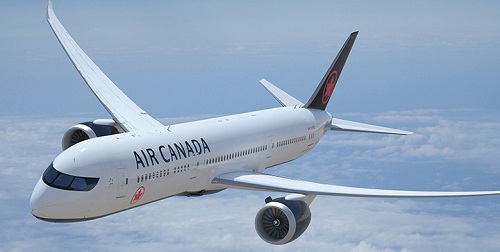
Under the project, coordinated by Canada's Biojet Supply Chain Initiative, Air Canada is a leading partner, introducing 230,000 litres of sustainable biofuel blended into the airport's multi-user fuel supply system.
Although biojet has been consumed in Canada in the past, all previous projects have required dedicated tanker trucks directly fueling aircraft. This project at Toronto Pearson is the first to blend biojet into the existing multi-user, co-mingled airport fuel supply system, thereby highlighting its feasibility and improving process efficiency.
"Air Canada is proud of its leading role in this biofuel project, the first of its kind in Canada, which will advance the use of low-carbon renewable fuels in Canada by demonstrating they can be used in shared fuel systems at airports," said Calin Rovinescu, President and Chief Executive of Air Canada.
Carbon savings from the biofuel blended into the Toronto Pearson system will be accredited to Air Canada domestic flights from Toronto on Earth Day, effectively making those flights less carbon intensive. These unique fuel operations are part of CBSCI, a three-year collaborative project between 14 stakeholder organizations working to enable a biojet supply chain in Canada.
Primary funding for the project, apart from the fuel purchase by Air Canada, comes from the Green Aviation Research and Development Network (GARDN), a non-profit organization funded by the Canadian aerospace industry and Canada's federal Network of Centres of Excellence.

